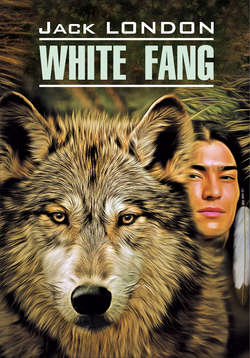Читать книгу White Fang / Белый Клык. Книга для чтения на английском языке - Джек Лондон, William Hootkins - Страница 8
Part II
Chapter IV
The Wall of the World
ОглавлениеBy the time his mother began leaving the cave on hunting expeditions, the cub had learned well the law that forbade his approaching the entrance. Not only had this law been forcibly and many times impressed on him by his mother’s nose and paw, but in him the instinct of fear was developing. Never, in his brief cave-life, had he encountered anything of which to be afraid. Yet fear was in him. It had come down to him from a remote ancestry through a thousand thousand lives. It was a heritage he had received directly from One Eye and the she-wolf; but to them, in turn, it had been passed down through all the generations of wolves that had gone before. Fear! – that legacy of the Wild which no animal may escape nor exchange for pottage[76].
So the grey cub knew fear, though he knew not the stuff of which fear was made. Possibly he accepted it as one of the restrictions of life. For he had already learned that there were such restrictions. Hunger he had known; and when he could not appease his hunger he had felt restriction. The hard obstruction of the cave-wall, the sharp nudge of his mother’s nose, the smashing stroke of her paw, the hunger unappeased of several famines, had borne in upon him that all was not freedom in the world, that to life there were limitations and restraints[77]. These limitations and restraints were laws. To be obedient to them was to escape hurt and make for happiness.
He did not reason the question out in this man fashion. He merely classified the things that hurt and the things that did not hurt. And after such classification he avoided the things that hurt, the restrictions and restraints, in order to enjoy the satisfactions and the remunerations of life.
Thus it was that in obedience to the law laid down by his mother, and in obedience to the law of that unknown and nameless thing, fear, he kept away from the mouth of the cave. It remained to him a white wall of light. When his mother was absent, he slept most of the time, while during the intervals that he was awake he kept very quiet, suppressing the whimpering cries that tickled in his throat and strove for noise.
Once, lying awake, he heard a strange sound in the white wall. He did not know that it was a wolverine, standing outside, all a-trembling with its own daring, and cautiously scenting out the contents of the cave. The cub knew only that the sniff was strange, a something unclassified, therefore unknown and terrible – for the unknown was one of the chief elements that went into the making of fear.
The hair bristled upon the grey cub’s back, but it bristled silently. How was he to know that this thing that sniffed was a thing at which to bristle? It was not born of any knowledge of his, yet it was the visible expression of the fear that was in him, and for which, in his own life, there was no accounting. But fear was accompanied by another instinct – that of concealment. The cub was in a frenzy of terror, yet he lay without movement or sound, frozen, petrified into immobility, to all appearances dead[78]. His mother, coming home, growled as she smelt the wolverine’s track, and bounded into the cave and licked and nozzled him with undue vehemence of affection. And the cub felt that somehow he had escaped a great hurt.
But there were other forces at work in the cub, the greatest of which was growth. Instinct and law demanded of him obedience. But growth demanded disobedience. His mother and fear impelled him to keep away from the white wall. Growth is life, and life is for ever destined to make for light[79]. So there was no damming up the tide of life that was rising within him – rising with every mouthful of meat he swallowed, with every breath he drew. In the end, one day, fear and obedience were swept away by the rush of life, and the cub straddled and sprawled toward the entrance.
Unlike any other wall with which he had had experience, this wall seemed to recede from him as he approached. No hard surface collided with the tender little nose he thrust out tentatively before him. The substance of the wall seemed as permeable and yielding as light. And as condition, in his eyes, had the seeming of form, so he entered into what had been wall to him and bathed in the substance that composed it.
It was bewildering. He was sprawling through solidity. And ever the light grew brighter. Fear urged him to go back, but growth drove him on. Suddenly he found himself at the mouth of the cave. The wall, inside which he had thought himself, as suddenly leaped back before him to an immeasurable distance. The light had become painfully bright. He was dazzled by it. Likewise he was made dizzy by this abrupt and tremendous extension of space. Automatically, his eyes were adjusting themselves to the brightness, focusing themselves to meet the increased distance of objects. At first, the wall had leaped beyond his vision. He now saw it again; but it had taken upon itself a remarkable remoteness. Also, its appearance had changed. It was now a variegated wall, composed of the trees that fringed the stream, the opposing mountain that towered above the trees, and the sky that out-towered the mountain.
76
exchange for pottage – (разг.) променять на чечевичную похлебку
77
limitations and restraints – (разг.) ограничения и запреты
78
to all appearances dead – (разг.) с виду мертвый
79
to make for light – (разг.) стремиться к свету
